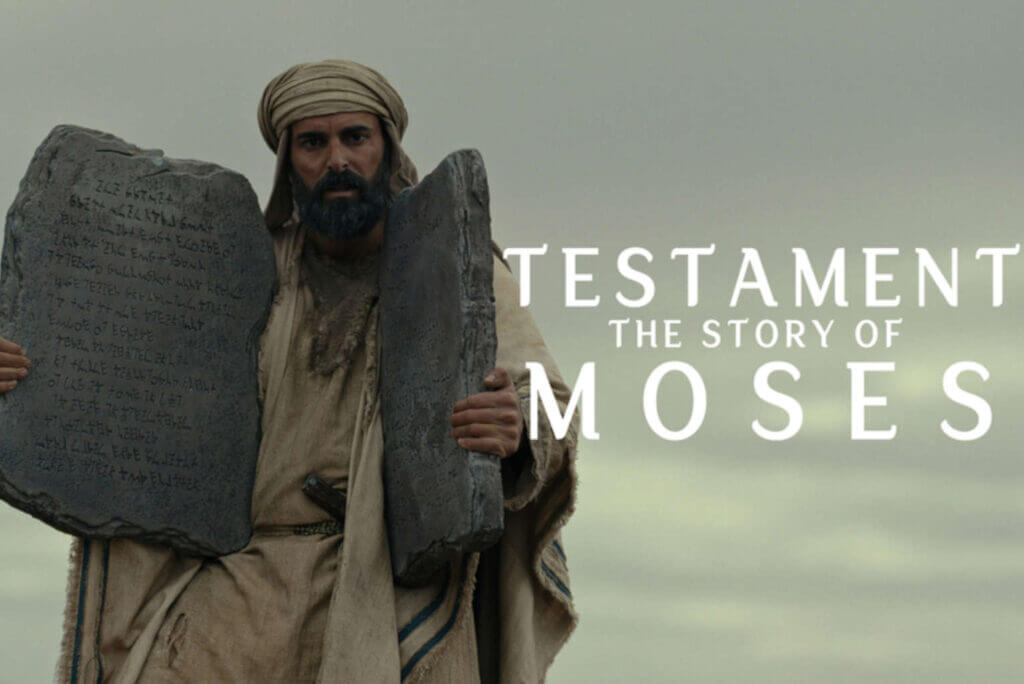Two California-based brothers are using their gripping documentary about the martyrdom of their father to encourage American Christians to support the persecuted church.
Jospeh and Andre Hovsepian have shown A Cry From Iran in churches across the country since its release in September 2007. “Our goal is to see support through prayer and anything else that can be directed toward Iran,” Joseph Hovsepian said. “Also we want to encourage the Iranians and the persecuted church no matter where in the world.”
In 1994, Haik Hovsepian, an Assemblies of God pastor and leader of the Protestant churches in Iran, rose to the defense of a Christian man sentenced to die for converting from Islam. Leading an international protest, Hovsepian campaigned successfully for the condemned man’s release.
But three days later, Hovsepian himself disappeared. His body was soon found riddled with knife wounds. Two other prominent Iranian Christians were martyred six months later, leaving the church stunned and grieving. Hovsepian left behind a wife and four children.
Using real footage from inside Iran to depict life under one of the world’s most Christ-hostile regimes, the brothers, now professional television producers living in Burbank, Calif., issue a call to action to the American church for support and prayer.
“We thought this would be a very powerful story,” said Joseph Hovsepian, 34, Haik’s eldest son and producer and director of A Cry From Iran. “At the time my view was very personal. I saw it as something that would please our family and families of martyrs and the Iranian church. But later, after living in America and seeing Christians who didn’t care or know about the persecuted church, we saw another need—to inform Westerners [about the persecution in Iran] so they could start supporting the church there with the power of prayer and in every way.”
Joseph Hovsepian began planning the documentary about his father within a year of Haik’s death, and he and brother Andre covertly shot much of the footage before leaving Iran in 1999. “We did a lot of James Bond stuff” like hiding the camera on a motorcycle and filming in sensitive areas, Andre Hovsepian said.
Finishing the film was a family affair. Their sister logged the video footage from nearly 200 tapes and came up with the name A Cry From Iran. Brother Gilbert wrote and performed the soundtrack. “During the editing process, we felt we would go to that office day or night and my dad was there,” Andre Hovsepian said. “We relived with him. It was comforting, but when it came to the graphics it would bother us emotionally.”
Andre Hovsepian, 24, played the young version of his father in the re-enactments. “That was emotional for me, to feel my dad’s suit, standing there preaching at almost the same age [as when he began his ministry],” he said.
“There were moments where Andre and I, in late nights of editing in the office … sometimes shed some tears together, especially seeing my dad and his smile and his peace,” Joseph Hovsepian said. “But at the same time it would encourage us toward our goal to grow more victorious and not be scared or worried about anything else.”
Carl Moeller, president and chief executive officer of Open Doors USA, said his organization has been a friend of the Hovsepian family since the days when Haik was still ministering in Iran. Two years ago the ministry funded the completion of the documentary and has since screened it in hundreds of churches, small groups and other gatherings around the country.
Open Doors also helped the Hovsepians take the movie to leading film festivals, where it has won numerous awards, including half a dozen Best Documentary prizes from festivals such as the International Christian Film Festival.
“We’re using the documentary in churches to mobilize people on behalf of their Christian brothers and sisters in Iran,” Moeller said. “It’s been really well-received. … The Hovsepians have made a great contribution to the awareness of Christians worldwide about the state of the church in Iran and how Christians are persecuted there. … The Open Doors team looked at it as an excellent opportunity to inform Americans about the state of Christians in Iran.
“It’s not history; it’s going on right now. This isn’t just a story about what happened in the past but is the active present for hundreds of thousands of Iranian Christians.”
To finish the film, the Hovsepian brothers traveled to Turkey and other countries to shoot re-enactments and interviews. Soon the brothers “realized this wasn’t a story about Hovsepians or even about martyrs and their personal feelings. … There was a bigger vision for us—bringing the body of Christ in Iran and around the world together,” Joseph Hovsepian said.
They also wanted to make it “as real and true as possible,” Andre Hovsepian said. “We didn’t want to exaggerate or make it emotional.”
“We didn’t want to create false excitement,” Joseph Hovsepian added. “We wanted to create the feel of what the situation of Iran was like, and [present a] call for action and challenge the Western audience, but in a very natural way. … And we wanted to introduce a few heroes. Of course their names will be written in heaven, and we will recognize them there with their reward, but we need to honor their names, and this was the most we could do. … If we could do one film for my dad, this would have been it.”
According to many with firsthand knowledge, Iran is now experiencing one of the great revivals of modern times due to supernatural phenomena such as dreams and visions, and to satellite television and the Internet, which now connect Iranian believers instantly—and, for the most part, safely—to Christians around the world. The church in Iran has grown from a few thousand people in the mid-1990s to several hundred thousand people today.
But there is already a new wave of persecution against Christians, according to the U.S. government and ministries such as Open Doors. Pastors and converts from Islam are regularly interrogated, beaten and imprisoned. Police burst into church services to frighten congregations. Christians are routinely excluded from good jobs and schools.
Although martyrdom is not common, the government is now considering making the death penalty mandatory for anyone who leaves Islam. And pastors still face dire threats. In 2005, a church leader was killed at his front door.
The regime also tries intermittently to clamp down on the free flow of information. In the last few years it has jammed satellite signals during Christian programs, banned high-speed Internet service, closed Internet cafés, destroyed satellite dishes and censored blogs. Arab advertisers sometimes threaten to boycott stations that carry Christian programs.
Spies also have infiltrated online church meetings and gathered information on the people involved. Now underground church members use elaborate techniques to verify the identities of participants. They also disallow the sharing of information such as names and locations during online meetings.
The Hovsepian brothers are convinced that “the blood of the martyrs is the seed of the church.”
“You look at the numbers at the time [of our father’s death]: Assemblies of God churches had 1,000. The total number of Christians in Iran was 2,000,” Joseph Hovsepian said. “Now it’s 100,000.
“I think that is something even my dad didn’t expect to happen. … All of that speaks of the power of the blood of the martyrs.”
“One of the direct results of martyrdom in Iran has been the increasing zeal of Christians, especially Muslim-background Christians,” Andre Hovsepian said. “When they see an Armenian man, my dad, who gave his life for Iran and for his faith, that really increases their passion for God.
“They ask, ‘Why would someone give their life?’ And this journey starts within them. Then they go tell their friends, and this is how it multiplies.”
See an error in this article?
To contact us or to submit an article






















